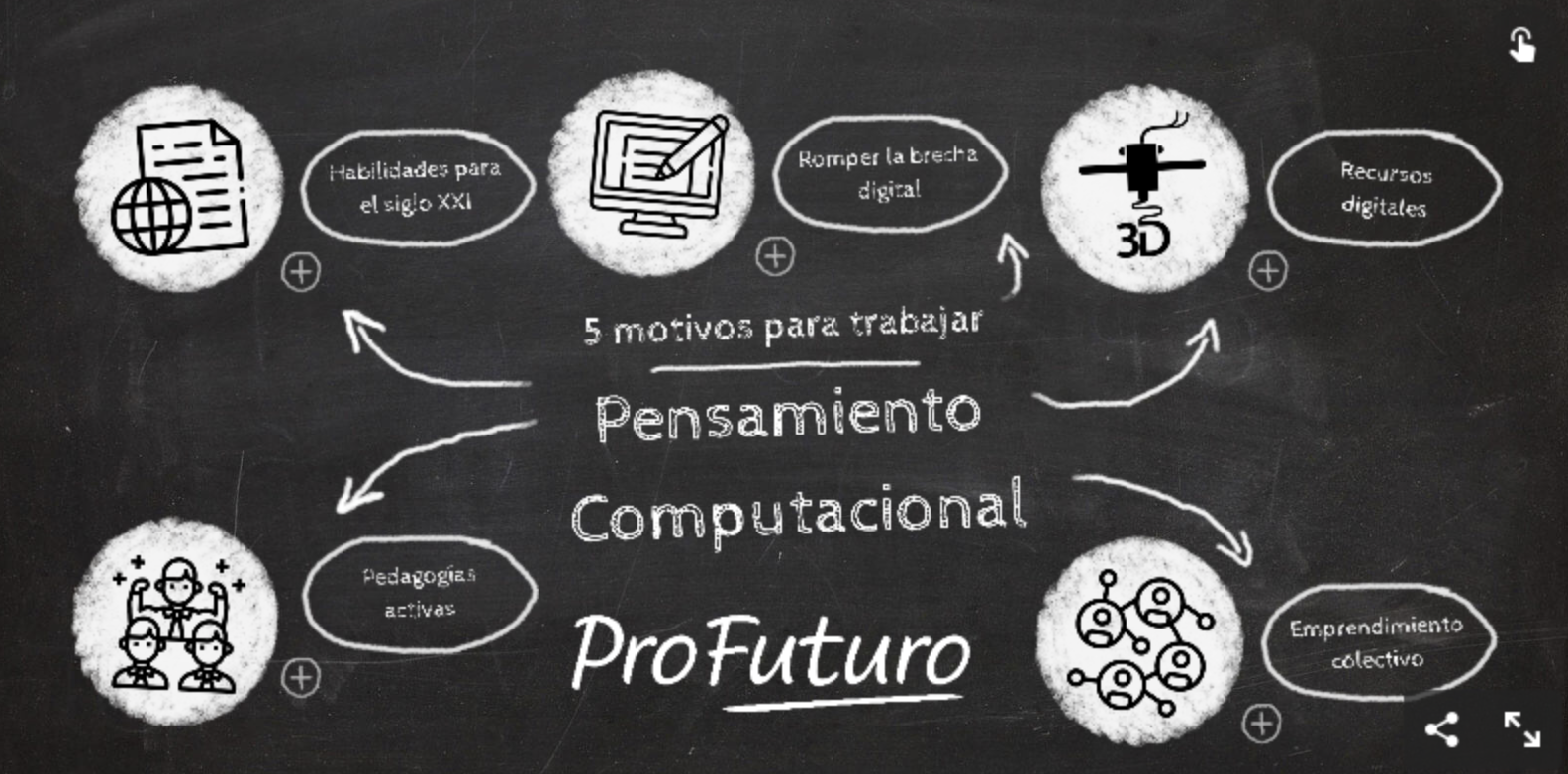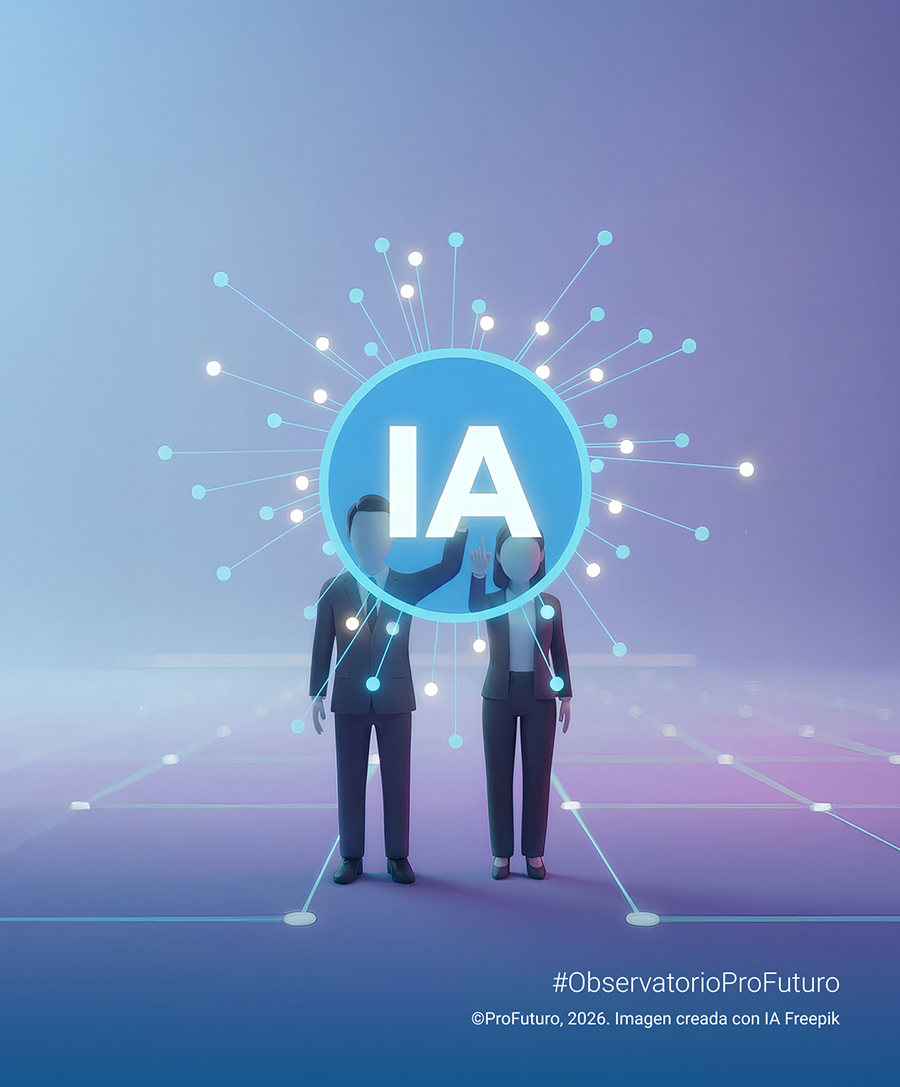The Information and Knowledge Society has created the need to acquire new skills to be able to face an increasingly complex and changing digital context. Given this reality, the incorporation of exponential technologies in educational environments, opens a field of infinite possibilities to facilitate a teaching and learning process that facilitates the acquisition of the skills needed for the 21st century.
As UNESCO (2015; 2017) maintains, the acquisition of these skills will enable children to deal effectively with problem-solving situations or the effective materialisation of ideas. Similarly, following ProFuturo’s mission, these skills enable the existing digital and social gap to be broken, and to build a citizen identity, concerned about social problems, and an identity for connection, which seeks new solutions through collective entrepreneurship.
Faced with the challenge of training tomorrow’s generation in the skills needed to meet the challenges of the digital age, including Computational Thinking in educational environments has become especially relevant. As an educational proposal, it spreads across both digital and analogical skills. In addition, it energises and pushes the school community to work with children in a process of empowerment and autonomy in order to respond to the challenges of our century.
Therefore, ProFuturo sees the development of this work context in vulnerable educational environments as an opportunity. This is especially true when the projects in these environments address two key orientations which are enhanced through Computational Thinking:
- On the one hand, the ease with which digital resources, and especially programming, help to develop Computational Thinking must be highlighted. Working with these resources contributes to a reduction of the digital gap that will empower children in socially disadvantaged situations so that they can be incorporated into what’s known as the digital society. Thus, in a changing world with an ever-increasing presence of technology in various areas of our lives, learning the logic of how it works and its language is essential to reducing existing gaps and promote critical digital literacy.
- On the other hand, Computational Thinking allows us to approach the teaching and learning process from an approach focused on the adoption of active pedagogies. An approach that allows the development of an experiential and critical education in which the students take an active role in their learning process. Thus, the practices of investigation, experimentation, invention and reflection, among others, are accentuated.
With the advantages that the development of Computational Thinking can bring, its integration has gained interest and influence in various educational fields. In addition, it has given rise to a debate on its concept, meaning and scope, by various authors which we will address in successive entries in the ProFuturo Observatory.
In the meantime, we leave you with this infographic summarising the reasons that lead us to work with Computational Thinking in vulnerable environments:
References:
UNESCO (2015). El futuro del aprendizaje, ¿qué tipo de aprendizaje se necesita en el siglo XXI?, Investigación y prospectiva en Educación, 14, 1-19. Retrieved from https://unesdoc.unesco.org/ark:/48223/pf0000242996_spa.
UNESCO-OREALC. (2017). Reporte: Educación y habilidades para el siglo XXI. Reunión Regional de Ministros de Educación de América Latina y el Caribe, Buenos Aires, Argentina, 24 y 25 de enero 2017. Publicado por la Oficina Regional de Educación para América Latina y el Caribe (OREALC/UNESCO Santiago).






